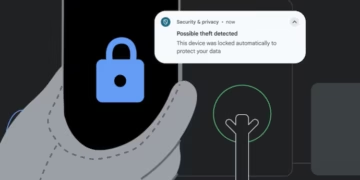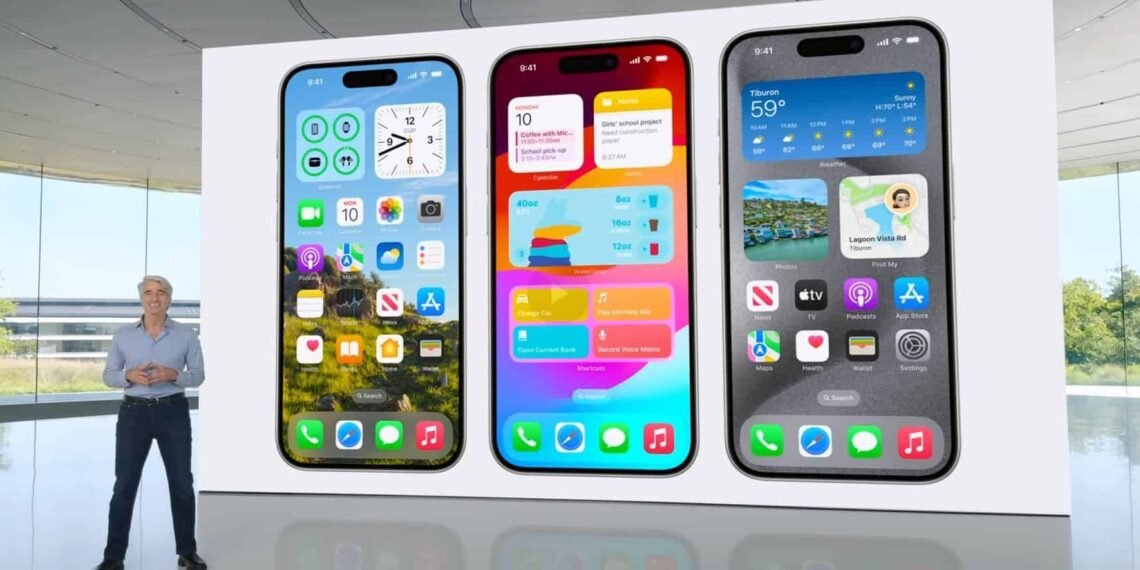Apple has recently rolled out an update, iOS 18.4.1, aimed at correcting two significant security issues in their iPhones that have been exploited in attacks. iOS 18.4.1 arrives on the heels of the earlier 18.4 version, demonstrating Apple’s urgency in addressing these vulnerabilities. The update targets two specific flaws: one within the iPhone’s CoreAudio and the other in RPAC, both of which have implications for a user’s device security. The CoreAudio flaw, in particular, could potentially allow harmful code to be executed if a corrupt media file is processed.

The urgency is twofold; not only are users advised to update their devices promptly, but Apple has also been careful not to disclose too much information about the security issues to prevent further exploitation. The iOS 18.4.1 update underscores the continuous attention necessary to safeguard operating systems against sophisticated attacks and follows a series of other critical updates addressing a multitude of vulnerabilities.
Key Takeaways
- The latest iOS 18.4.1 update addresses critical security flaws actively used in real-life attacks.
- Users should promptly update their iPhone to protect against sophisticated exploits due to vulnerabilities in CoreAudio and RPAC.
- Routine software updates from Apple offer ongoing protection against emerging security threats for its operating systems.
Vulnerabilities in iOS 18.4.1 and Their Exploitation
The release of iOS 18.4.1 came unusually quickly, hinting at the urgency of the situation. The critical issues patched in this update suggest that attackers could deploy spyware through clever methods. Google’s team, skilled in finding such flaws, uncovered a significant risk in the Core Media component.
Security authorities have highlighted that these flaws were likely exploited to implant spyware. Such an attack would be perilous because it might grant attackers total access to the compromised device, allowing them to monitor personal data, even through secure channels like WhatsApp and Signal. Essentially, they could observe all the activity on your screen once they infiltrated the phone.
One of the reported flaws was in Core Audio, humorously dubbed the “Podcast of death” due to its potential to wreak havoc via a simple audio file. This illustrates the alarming power and subtlety of the threat.
Despite the severity, there’s some comfort in knowing that spyware attacks are not widespread. These vulnerabilities were probably exploited in narrow, targeted attacks rather than widespread campaigns. This precision means that the average iPhone user is less likely to be affected, but the risk still exists, particularly for specific individuals.
For those worried about being targeted, rebooting the device might disrupt the spyware temporarily. However, once a phone is compromised, the recommended course is often to cease using the device, as spyware can be extremely challenging to remove completely.
With iOS 18.4.1‘s patches, users received necessary protections against these vulnerabilities. It is always advised to keep devices updated to the latest software version to safeguard against such security threats.
Zero-Day Vulnerabilities Rectified in Recent Update

The recent iOS 18.4.1 upgrade brought to light two critical vulnerabilities that had been exploited prior to being detected by developers. The urgency of installing the latest patches highlights the need to safeguard against such security risks which could already be under exploitation in the wild.
One significant issue, addressed within the Core Audio framework, was regarded with a severe urgency, evidenced by its Common Vulnerability Scoring System (CVSS) score of 7.5. The second vulnerability was identified in the RPAC system and logged with a score of 6.8, indicating a substantial security concern.
At the heart of these vulnerabilities was the potential to circumvent pointer authentication, a robust security feature intended to prevent illicit alterations in device memory pointers. It typically relies on codes to detect and secure pointers against unauthorized changes, thus thwarting memory disclosure attacks.
By overcoming this security mechanism, attackers could gain unauthorized access to sensitive areas of a device’s memory. This would not only enable them to carry out targeted and harmful attacks but would also leave personal and enterprise devices highly vulnerable.
Industry experts strongly emphasize the necessity of prompt application of the iOS 18.4.1 update. It is deemed critical to protect not just individual users but also to secure corporate data and infrastructure. Additionally, understanding the workings of such memory corruption issues underscores their significance and the potential implications of a successful bypass of security protocols such as pointer authentication.
Additional System Security Enhancements
In tandem with the release of iOS 18.4.1, Apple launched several other software updates to fortify security across its devices. macOS Sequoia 15.4.1 brings similar security patches to Mac computers, and users with the Apple TV can update to tvOS 18.4.1 to protect their devices. Additionally, the Apple Vision Pro headset received an update to visionOS 2.4.1, addressing the same vulnerabilities.
For Apple Watch owners, watchOS 11.4 was released, correcting numerous issues specific to the smartwatch. Web browsing also sees improvements with Safari 18.4, targeting vulnerabilities within WebKit, the framework essential to the browser’s operation.
Developers working on Apple’s platforms have access to an updated Xcode 16.3, which resolves two security concerns and is available for versions of macOS Sequoia 15.2 and newer. Finally, enhancements in Mobile Device Management (MDM) provide better device management capabilities.
Essential Reasons to Install iOS 18.4.1
Apple has released the iOS 18.4.1 software update as a crucial security improvement. Before the arrival of the more comprehensive iOS 18.5 update set for May, this interim update specifically targets critical security concerns. Notably, older iPhones that run on iOS 17 aren’t included in this update roll-out, largely because the particular vulnerabilities don’t affect them. Still, it’s important to note that devices capable of upgrading to iOS 18 will no longer receive security patches if they haven’t updated to iOS 18.
This recent update patches up significant problems. Security experts have found that the vulnerabilities addressed are already being taken advantage of. They recommend updating devices without delay. These experts, however, advise that there’s usually no need for alarm for most people.
iOS 18.4.1 aims to fix two critical zero-day vulnerabilities, making it imperative for users to apply the update right away. Although the specifics of the attacks utilizing these vulnerabilities indicate that they’ve been used against select targets—like reporters, activists, and certain industry professionals—there’s always the risk that the details of the vulnerabilities could spread, leading to broader exploitation.
The intricacies involved in launching attacks based on these vulnerabilities hint at their complexity. Still, Apple’s observations of their use in specific, targeted circumstances should not make other users complacent about updating their devices.
Aside from sealing up security gaps, the update remedies various glitches, including one that disrupts the wireless CarPlay feature in some vehicles.
The update is available for a range of Apple devices: from the iPhone XS and newer models to several generations of iPads, including the iPad Pro 13-inch and iPad Air 3rd generation, to name a few.
Given the urgency and the simplicity of securing the operating system, users are encouraged to take action swiftly. To do so, they should navigate to their Settings, tap on General, and proceed to Software Update to download and install iOS 18.4.1 and protect their devices against potential threats.





































